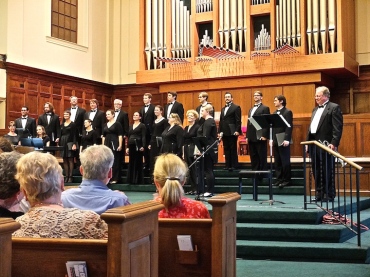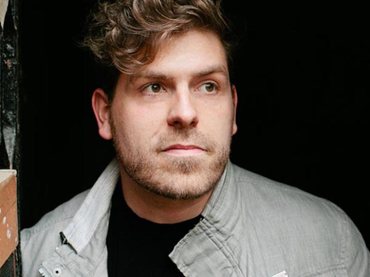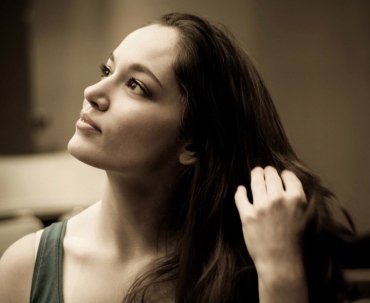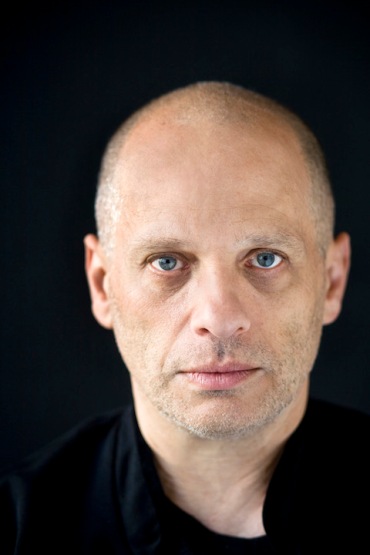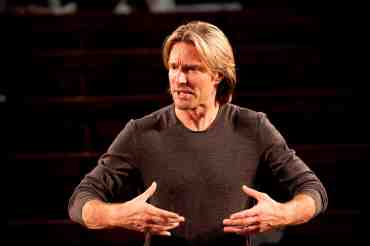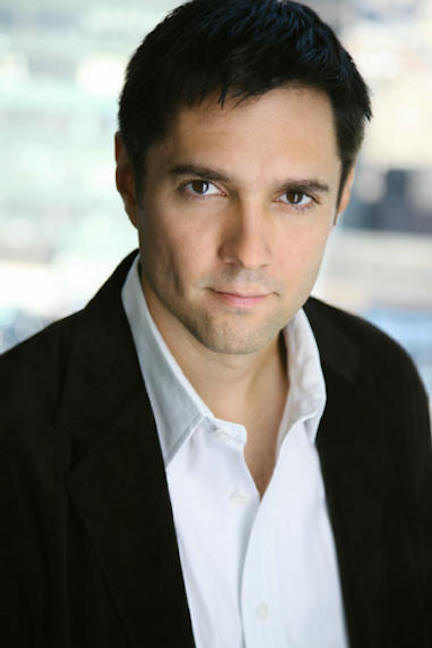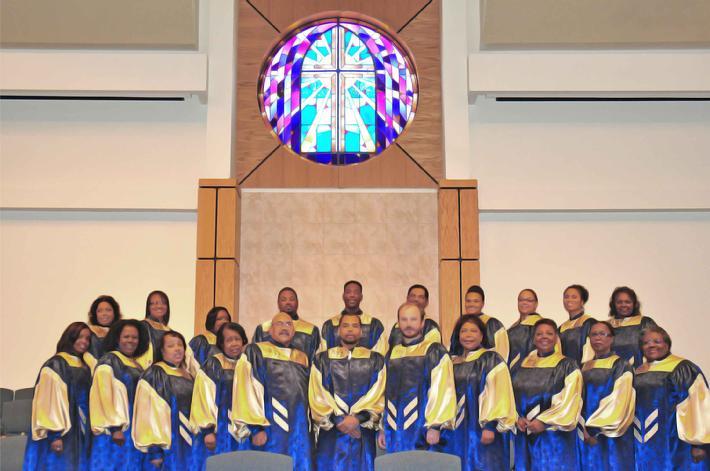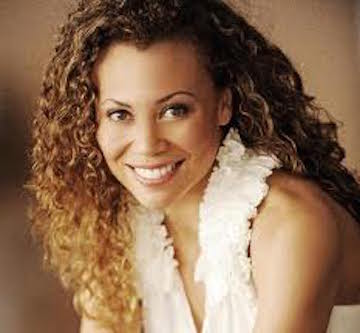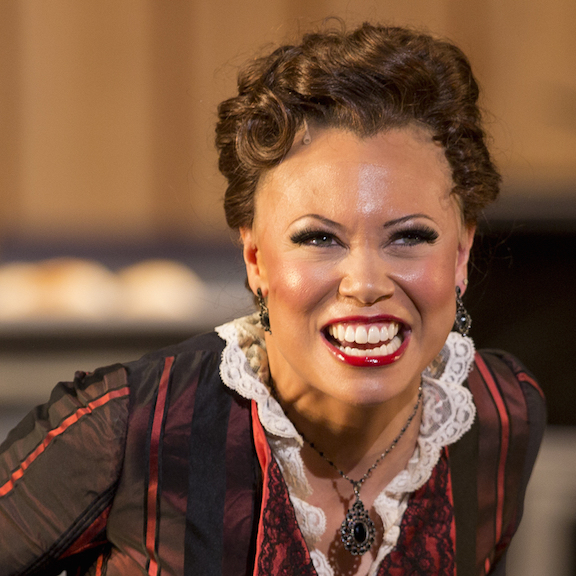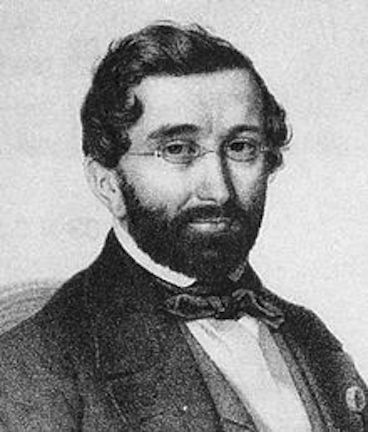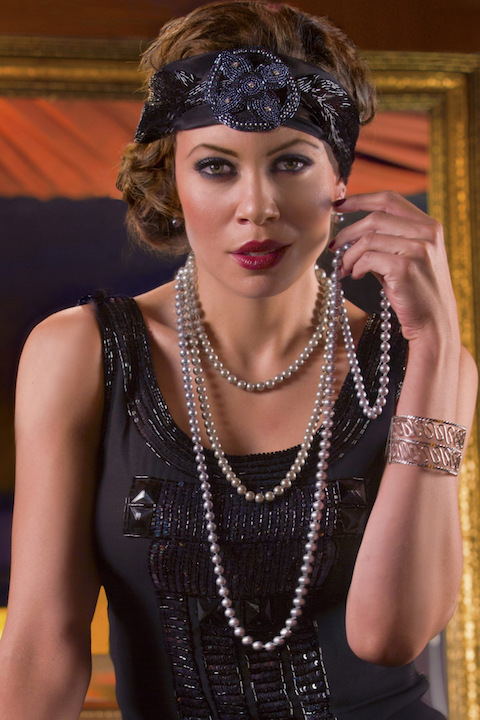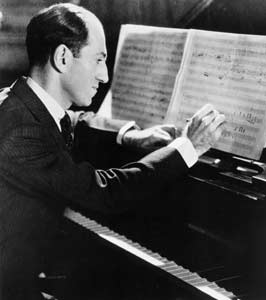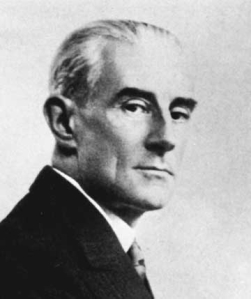The Well-Tempered Ear
Is a lot of ‘woke’ music inferior to the music it replaces?
12 Comments
PLEASE HELP THE EAR. IF YOU LIKE A CERTAIN BLOG POST, SPREAD THE WORD. FORWARD A LINK TO IT OR, SHARE IT or TAG IT (not just “Like” it) ON FACEBOOK. Performers can use the extra exposure to draw potential audience members to an event. And you might even attract new readers and subscribers to the blog.
By Jacob Stockinger
Is a widespread attempt to explore historically ignored music and overlooked, marginalized composers interfering with the public hearing greater, more important and more beautiful music?
It is a problematic but timely question or issue, especially during an era of political correctness and in our current culture wars.
To be sure, you can hear some memorable music that has unjustifiably been excluded from the so-called canon. The discovery of Florence Price (below) is a prime example. The same can be said for Clara Schumann.
It does seem that a lot of the newly rediscovered pieces and composers — Black, Hispanic, Indigenous, Asian, women, LGBT — deserve an initial hearing, if only out of curiosity and to correct the historical record.
But after being heard for the first time, many of them seem second- or third-rate. They deserve to be shelved for another few decades in favor of restoring greater music and greater composers to the active performing repertory.
To The Ear, for example, the symphonies by Michael Haydn always sound inferior to those of his famous older brother Joseph. And it doesn’t matter what critics and audiences of the day said, history its often — if not always — the better judge. The symphonies and violin concertos of the impressive and influential Joseph de Boulogne (Chevalier de Saint-Georges, below) are simply not as artistically interesting or engaging as those by his contemporary Mozart.
Anyway, whatever you think, The Ear came across an essay on the internet by George Leef that was published in The National Review — the iconic conservative political magazine founded by William Buckley. It contains background about current nationwide programming guidelines and organizations that you might not know.
It is an interesting point of view. It often goes over the top and clearly overstates the case against “woke” repertory by accusing those who support it of being “enemies of classical music” rather than sincere and well-intentioned progressive advocates of artistic justice.
But it deserves a serious reading and a serious answer to the provocative question of balancing the great and the less great. Here is a link:
Read it for yourself and make up your own mind.
Then please tell The Ear and other readers what you think in the Comment section.
The Ear wants to hear.
Tags: #Blackcomposers, #BlogPost, #BlogPosting, #ClaraSchumann, #FacebookPost, #FacebookPosting, #FlorencePrice, #RacialDiscrimination, #TheEar, #TheInternet, advocate, artistic, Arts, Asia, Asian composers, beautiful, Beethoven, bias, black, blog, Chevalier de Saint Georges, Clara Schumann, Classical music, composer, concerto, conservative, culture wars, discrimination, Ethnicity, explore, Facebook, first-rate, Florence Price, Franz Joseph Haydn, gay, gender, great, Haydn, History, iconic, Indigenous, indigenous music, inferior, intention, Internet, Jacob Stockinger, Johann Sebastian Bach, Joseph de Boulogne, justice, lesbian, LGBT, LGBTQ, link, Ludwig van Beethoven, male, marginal, Michael Haydn, Mozart, Music, organization, political, politically correct, Politics, progressive, public, race, racist, repertoire, repertory, second-rate, sex, Sexism, share, sincere, symphony, tag, The Ear, The National Review, third-rate, Violin, Website, white, William Buckley, woke, Wolfgang Amadeus Mozart, women
Classical music: Madison Choral Project gives a concert of new music focusing on the social and political theme of “Privilege” this Friday night and Sunday afternoon
1 Comment
ALERT: This week’s FREE Friday Noon Musicale, held at the First Unitarian Society of Madison, 900 University Bay Drive, features David Miller, trumpet; Amy Harr, cello; and Jane Peckham, piano. They will play music by Bach, Schmidt, Piazzolla, Honegger and Cooman. The concert runs from 12:15 to 1 p.m.
By Jacob Stockinger
Call it activist beauty or beautiful activism.
It sure seems that political and social relevance is making a comeback in the arts during an era in which inequality in race, gender, ethnicity, wealth, education, health, employment, immigration status and other issues loom larger and larger.
For the Madison Choral Project (below), for example, singing is about more than making music. It can also be about social justice.
Writes the Project:
“The Madison Choral Project believes that too often the classical music concert is simply a museum of the beautiful. Yet the worlds of theater, art and literature can so brilliantly combine beauty with material that provokes contemplation and understanding.
“Our world is increasingly complicated, and we seek to provide voices exploring important emotional and social concerns of today.”
That means that, in its two concerts this weekend, the Madison Choral Project will explore the concept of privilege in two performances this weekend.
The repertoire is all new music or contemporary music by living composers.
The Madison Choral Project, under the direction of Albert Pinsonneault (below), who formerly taught at Edgewood College and is now at Northwestern University, presents their 10th Project – Privilege – on this Friday night, April 21, at 8:30 p.m. (NOT 7:30, as originally announced, because of noise from a nearby football game); and on Sunday afternoon, April 23, at 3 p.m.
Both performances are at the First Congregational United Church of Christ, 1609 University Avenue, near Camp Randall Stadium.
General admission is $24 in advance and online; $28 at the door; and $10 for students either in advance or at the door. A limited number of preferred seats are offered for $40.
The Privilege concerts feature the work Privilege by Ted Hearne (b. 1982), which Hearne (below) writes “are settings of little texts questioning a contemporary privileged life (mine).”
With texts that range from the inequality of educational experiences, to the unfair playing field brought through race, the work sets thought-provoking texts in a beautiful and musically accessible way. (NOTE: You can hear it in the YouTube video at the bottom.)
The program also includes the world premiere of a new piece of music from Wisconsin composer and UW-Madison graduate D. Jasper Sussman (b. 1989, below), whose piece Work: “What choice?” is a contemplation of society’s confusing and hypocritical demands on women, their bodies and their appearance.
Sussman writes “I have never identified as a feminist. It’d be impossible, however, for me to remain ignorant of the clumsily uneven climate of our world, and certainly of this country. Work: “What Choice?” is an attempt at telling a common story shared by many.”
Included on the concert are two works of Pulitzer Prize-winning composer David Lang (b. 1957, below), whose new minimalism includes sonorities influenced by rock and popular music, but with layered repetition that gives the pieces a meditative and contemplative quality.
Also featured is When David Heard by Eric Whitacre (b. 1970, below), a gorgeous and devastating monologue contemplating the death of one’s child.
For more information and tickets, go to www.themcp.org
You can also go to a fine story in The Capital Times:
The Madison Choral Project is Wisconsin’s only fully professional choir. All the singers on stage are paid, professional musicians.
Tags: Activism, activist, Albert Pinsonneault, Art, Arts, Bach, Baroque, beautiful, beauty, Camp Randall Stadium, Chamber music, Child, choral music, Classical music, climate, composer, contemporary, Cooman, country, D. Jasper Sussman, David Lang, death, Edgewood College, Education, emotion, employment, Eric Whitacre, Ethnicity, feminism, feminist, First Unitarian Society of Madison, gender, Health, Honegger, immigration, Income Disparity, income inequality, inequality, Jacob Stockinger, Johann Sebastian Bach, literature, Madison, Madison Choral Project, minimalism, monologue, Music, New Music, Northwestern University, Piano, Piazzolla, political, Politics, pop, popular music, privilege, professional, Pulitzer Prize, race, relevance, repetition, Rock, Schmidt, singer, Singing, social, social justice, society, Ted Hearne, theater, Trumpet, United States, University of Wisconsin-Madison School of Music, University of Wisconsin–Madison, vocal music, wealth, wealth gay, Wisconsin, world premiere, YouTube
Classical music Q&A: Soprano Alyson Cambridge talks about mastering crossover genres and how to attract ethnically diverse audiences to classical music and opera. She sings with the Madison Symphony Orchestra in its annual Christmas concerts this weekend.
1 Comment
By Jacob Stockinger
This weekend the Madison Symphony Orchestra, with guest groups and soloists all under the baton of music director John DeMain, will kick off the holiday season with traditional Christmas concerts in Overture Hall of the Overture Center, 201 State St., on Friday night at 7:30 p.m., Saturday night at 8 p.m. and Sunday afternoon at 2:30 p.m.
The concerts will celebrate the holidays with a wide range of music from Johann Sebastian Bach, Irving Berlin, George Frideric Handel, John Rutter and Franz Schubert to holiday favorites and rocking Gospel selections -– topped off with the audience adding its voice to carols at the end.
Concert highlights include:
Soloists soprano Alyson Cambridge (below top) and tenor Harold Meers (below bottom), who are accomplished national operatic singers.
The Madison Symphony Chorus (below, in a photo by Greg Anderson), directed by Beverly Taylor, with 125 members, who come from all walks of life to combine their artistic talent.
The Madison Youth Choirs (below in a photo by Dan Sinclair), directed by Michael Ross, which combines young voices for a memorable experience.
Mt. Zion Gospel Choir (below), directed by Leotha Stanley, which uses jazz, blues and gospel harmonies to “raise the roof” in creating captivating music.
And, last but not least, the audience members who join in the singing.
Concertgoers are encouraged to arrive at the Overture Hall lobby 45 minutes before the concert so they can be moved by the Madison Symphony Chorus leading carols in the festively lit lobby.
MSO officials stress that these concerts typically sell out, so early ticket purchases are encouraged.
Single Tickets are $16 to $84 each, available at ww.madisonsymphony.org/singletickets and through the Overture Center Box Office at 201 State Street or call the Box Office at (608) 258-4141.
New subscribers can receive up to a 50% discount. For more information and to subscribe, visit www.madisonsymphony.org/newsub or call (608) 257-3734.
Groups of 15 or more can save 25% by calling the MSO office at (608) 257-3734. For more information visit, www.madisonsymphony.org/groups
Student rush tickets can be purchased in person on the day of the concert at the Overture Box Office at 201 State Street. Students must show a valid student ID and can receive up to two $12 or $15 tickets. More information is at: www.madisonsymphony.org/studentrush
Students can receive 20% savings on seats in select areas of the hall on advance ticket purchases.
Seniors age 62 and up receive 20% savings on advance and day-of-concert ticket purchases in select areas of the hall.
Discounted seats are subject to availability, and discounts may not be combined.
Here is an especially insightful Q&A that soprano Alyson Cambridge kindly gave to The Ear:
Could you briefly introduce yourself to readers, including how you first got involved in music including; when you started music lessons; the Aha! Moment when you knew you wanted to pursue music as a professional career; and your current projects and future plans?
I began voice lessons when I was 12 years old, but had always been musical and theatrical. I studied piano from age 4 to 14 and dabbled in violin and flute along the way.
In truth, I came to classical singing and opera because a neighbor overheard me playing around and impersonating an opera singer as a joke. (There were all types of music playing around my house — everything from classical, to reggae, to Calypso “soca” to jazz to pop — and I imitated all the singers I heard.)
However, my “opera singer voice” wasn’t half bad and I was encouraged to start voice lessons, which I did. It was my first teacher who encouraged me to begin training classically.
In terms of pursuing it as a career, I think I was honestly split for a long time. I knew I loved singing and performing, but I also really enjoyed sports, my academic studies, being social, sort of “normal” teenage stuff. As a result, I was a double-degree undergraduate at Oberlin College, earning degrees in both sociology/pre-law and Voice Performance.
My final year at Oberlin, I decided to apply only to the Juilliard School and the Curtis Institute for my master’s studies, and said if I didn’t get it I would go to law school. If I DID get into either school, I decided I’d consider it a sign to give a music career a real shot and five years to “make it.”
I ended up at Curtis, where I only spent one year, and the next year I was in New York, having won the Metropolitan Opera National Council Auditions, and joining the MET’s Lindemann Young Artist Development Program. The next year I made my MET debut … and that’s how it all happened! (Below is a photo of Alyson Cambridge playing Julia in Jerome Kern’s “Show Boat.”
You will be singing in “O Holy Night” by Adolphe Adam (below top and at the bottom in a YouTube video) and the “Gloria” by Francis Poulenc (below bottom). Talk about “crossover” singing. How does singing classical music help or hinder you in singing jazz, pop and holiday music, and vice-versa?
In truth, I have only seen advantages to singing both classically and “crossover.” Although I trained classically, I grew up singing and being exposed to pop, musical theater, jazz — you name it. So, I have a natural affinity for the non-classical, and I also study with musical theater, jazz and crossover coaches as well as my classical/opera teachers and coaches.
I think it’s important to approach all styles with respect and not try to make a style sound only one way or use only one part of your vocal color or stylistic palette. I love and enjoy both, so I sing both. And, in speaking with audiences following a performance in which I sing both, I find audiences love the variety too.
What is it that attracts you most in each genre? What is the most challenging part of each genre? Do they appeal to different parts of your personality? What do you think of holiday music and holiday concerts?
Both genres offer their own unique set of musical colors, and I like highlighting those when I am singing them. You may, for example, get a glorious high-soaring melody over a full orchestra in a classical piece. In a traditionally more “crossover” or contemporary piece, you might highlight the intimacy and the nuance in the text and storytelling in the song (like “White Christmas,” for example) in a way you may not be able to do or that is applicable in a piece like Poulenc’s “Gloria.”
I love all kinds of holiday music, and think that’s what’s so great about the concert that Maestro DeMain (below, conducting in a Santa hat in a photo by Bob Rashid) has put together — there really is something for everyone, and it’s ALL wonderful!
You have worked with John DeMain before in George Gershwin’s “Porgy and Bess” and Jerome Kern’s “Showboat.” Do you have anything to say about your experiences with maestro DeMain? Have you performed before in Madison and do you have anything you want to say about performing with the Madison Symphony Orchestra and John DeMain in Madison?
I adore John DeMain! When I was asked to do these concerts with him, I was thrilled for yet another opportunity to work with him. We have visited some of the greatest pieces of American opera and musical theater together over the years, and to come together now on a program that celebrates the most wonderful classical and popular holiday music is something to which I am really looking forward.
This will be my first time performing with the Madison Symphony Orchestra. Having heard nothing but raves about them from friends, colleagues and Maestro DeMain (below in a photo by Prasad), I can’t wait!
Do you have any suggestions about how to attract audiences that are more ethnically diverse to classical music?
This is a great question, and an answer that I think comes down to one simple idea: EXPOSURE! I have yet to meet a child or adult, of any race, gender or socio-economic background who, upon seeing and hearing a live opera or classical concert or performance, no matter how grand or small, who hasn’t been moved, touched or curious to hear or learn more.
I have an upcoming television appearance on Nov. 30 in which I will be the first opera singer ever to be a featured performer on Black Entertainment Television (BET) and Centric TV’s Soul Train Awards. The first broadcast on Sunday is estimated to reach over 4.5 million viewers, and I know that the viewership will not be the “typical” opera audience…and I think it is GREAT, and I can’t WAIT for it to happen! We taped the show on Nov. 7 in Las Vegas, and the reaction from the 3,000 people in attendance at the show taping was awesome.
An audience filled of primarily R&B, rap, hip hop and soul artists and fans, got to hear and see opera in a whole new light, one that was much different from the stereotypes perpetuated in ads and rooted in outdated ideas of what opera and classical music are. It was a wonderful thing to be a part of, and I think more opportunities and advantages should be taken and can come from exposure like that. (Below is a photo by Richard Termine of Alyson Cambridge singing in George Gershwin’s short jazz opera “Blue Monday.”)
Is there anything else you would like to add or say?
I am appreciative of the curiosity that comes with crossing genres and reaching new audiences, and the conversations that come with it. It’s having these conversations that I think helps pique interest in new potential listeners and concert-goers.
I am also immensely thankful for my family, without whose constant support and encouragement to follow my slightly less-than-traditional opera singer path has meant more than words can express! I’ve never been one to “color inside the lines,” and having wonderful colleagues and mentors like John DeMain and so many others, and friends and family who support and respect that is an invaluable thing!
Tags: Adolphe Adam, Alyson Cambridge, Arts, Bach, Baroque, BET, Black Entertainment Television, Black Entertainment TV, Blue Monday, calypso, Carols, Centric TV, Christmas, Classical music, conductor, Curtis Institute of Music, diversity, ethnic, ethnic diversity, Ethnicity, George Frideric Handel, George Gershwin, gospel, hip-hop, Holidays, Irving Berlin, Jacob Stockinger, Jazz, Jerome Kern, Johann Sebastian Bach, John DeMain, Juilliard School, law school, Madison, Madison Symphony Orchestra, Metropolitan Opera, Music, O Holy Night, Oberlin College, opera, Orchestra, Overture Center, performance, Porgy and Bess, Poulenc, R&B, Rock, Santa, Schubert, Show Boat, Showboat, soca, sociology, soprano, soul, Soul Train Awards, tenor, vocal music, voice, YouTube
Classical music: To celebrate Black History Month, let us now praise the influence of African-American composers on European classical music and learn about “Afric-classical” music more often than one month out of 12.
4 Comments
By Jacob Stockinger
What is the best way to celebrate Black History Month, which ends on Wednesday?
One way is to recall some uncovered or previously neglected black or African-American composers of art music or concert hall music. Ever hear of Joseph Boulogne, the Chevalier des Saint Georges? I hadn’t either. Maybe someday someone will program his music in concert. In the meantime, here is a clip:
Here is a link to a deeply informative website with several helpful pages about him and lists of all sorts of other neglected black composers of classical music, or so-called “Afri-classical” music:
http://chevalierdesaintgeorges.homestead.com/
http://chevalierdesaintgeorges.homestead.com/history.html
http://chevalierdesaintgeorges.homestead.com/others.html
And here is a link to a daly blog that has helpful information more than one month out of 12:
http://africlassical.blogspot.com/
Another approach is to recall that the influence that black music has had on American music and composers such as Aaron Copland. That may help to explain the burst of programs, local and national, featuring George Gershwin (below), who incorporated blues, jazz and spirituals into his early “crossover” music.
After all, incorporating black music in America was not unlike the way that Brahms incorporated Gypsy tunes and dance rhythms or the way that Haydn and Beethoven used peasant dances like the landler into European music or the way Chopin used Polish idioms such as the mazurka and polonaise.
But this year I decided I wanted to highlight the way that African-American music has influenced very well-known European composers of classical music.
Some obvious ones come to mind, including Antonin Dvorak (the “New World” Symphony), Claude Debussy, Maurice Ravel (below) and Francis Poulenc. It’s curious how the French seem especially open to new and foreign cultural influences.
Anyway, the piece that has grabbed my attention this year is the captivating “Blues” movement from Ravel’s Violin Sonata, especially in a stunningly beautiful performance on the outstanding new Sony CD “French Impressions” by violinist Joshua Bell and pianist Jeremy Denk. It is in the YouTube video below and starts at the 11-minute mark.
So as a salute to Black History Month, here is that performance, not from the actual CD but from the CD release party at the famous night club “Le Poisson Rouge” in New York City:
What pieces would you play to do the same?
The Ear wants to hear.
- May 2024
- April 2024
- March 2024
- February 2024
- January 2024
- December 2023
- November 2023
- October 2023
- September 2023
- August 2023
- July 2023
- June 2023
- May 2023
- April 2023
- March 2023
- February 2023
- January 2023
- December 2022
- October 2022
- September 2022
- June 2022
- May 2022
- April 2022
- March 2022
- July 2021
- June 2021
- May 2021
- April 2021
- March 2021
- February 2021
- January 2021
- December 2020
- November 2020
- October 2020
- September 2020
- August 2020
- July 2020
- June 2020
- May 2020
- April 2020
- March 2020
- February 2020
- January 2020
- December 2019
- November 2019
- October 2019
- September 2019
- August 2019
- July 2019
- June 2019
- May 2019
- April 2019
- March 2019
- February 2019
- January 2019
- December 2018
- November 2018
- October 2018
- September 2018
- August 2018
- July 2018
- June 2018
- May 2018
- April 2018
- March 2018
- February 2018
- January 2018
- December 2017
- November 2017
- October 2017
- September 2017
- August 2017
- July 2017
- June 2017
- May 2017
- April 2017
- March 2017
- February 2017
- January 2017
- December 2016
- November 2016
- October 2016
- September 2016
- August 2016
- July 2016
- June 2016
- May 2016
- April 2016
- March 2016
- February 2016
- January 2016
- December 2015
- November 2015
- October 2015
- September 2015
- August 2015
- July 2015
- June 2015
- May 2015
- April 2015
- March 2015
- February 2015
- January 2015
- December 2014
- November 2014
- October 2014
- September 2014
- August 2014
- July 2014
- June 2014
- May 2014
- April 2014
- March 2014
- February 2014
- January 2014
- December 2013
- November 2013
- October 2013
- September 2013
- August 2013
- July 2013
- June 2013
- May 2013
- April 2013
- March 2013
- February 2013
- January 2013
- December 2012
- November 2012
- October 2012
- September 2012
- August 2012
- July 2012
- June 2012
- May 2012
- April 2012
- March 2012
- February 2012
- January 2012
- December 2011
- November 2011
- October 2011
- September 2011
- August 2011
- July 2011
- June 2011
- May 2011
- April 2011
- March 2011
- February 2011
- January 2011
- December 2010
- November 2010
- October 2010
- September 2010
- August 2010
- July 2010
- June 2010
- May 2010
- April 2010
- March 2010
- February 2010
- January 2010
- December 2009
- November 2009
- October 2009
- September 2009
- August 2009
Archives
- 2,493,291 hits
Blog Stats
Recent Comments
| welltemperedear on What do you think of the… | |
| Scott on What do you think of the… | |
| welltemperedear on Yunchan Lim’s Chopin etudes ar… | |
| bratschespeilerin on What do you think of the… | |
| MARVIN P WICKENS on Yunchan Lim’s Chopin etudes ar… |
Tags
#BlogPost #BlogPosting #ChamberMusic #FacebookPost #FacebookPosting #MeadWitterSchoolofMusic #TheEar #UniversityofWisconsin-Madison #YouTubevideo Arts audience Bach Baroque Beethoven blog Cello Chamber music choral music Classical music Compact Disc composer Concert concerto conductor Early music Facebook forward Franz Schubert George Frideric Handel Jacob Stockinger Johannes Brahms Johann Sebastian Bach John DeMain like link Ludwig van Beethoven Madison Madison Opera Madison Symphony Orchestra Mead Witter School of Music Mozart Music New Music New York City NPR opera Orchestra Overture Center performer Pianist Piano post posting program share singer Sonata song soprano String quartet Student symphony tag The Ear United States University of Wisconsin-Madison School of Music University of Wisconsin–Madison Viola Violin vocal music Wisconsin Wisconsin Chamber Orchestra wisconsin public radio Wolfgang Amadeus Mozart YouTube

